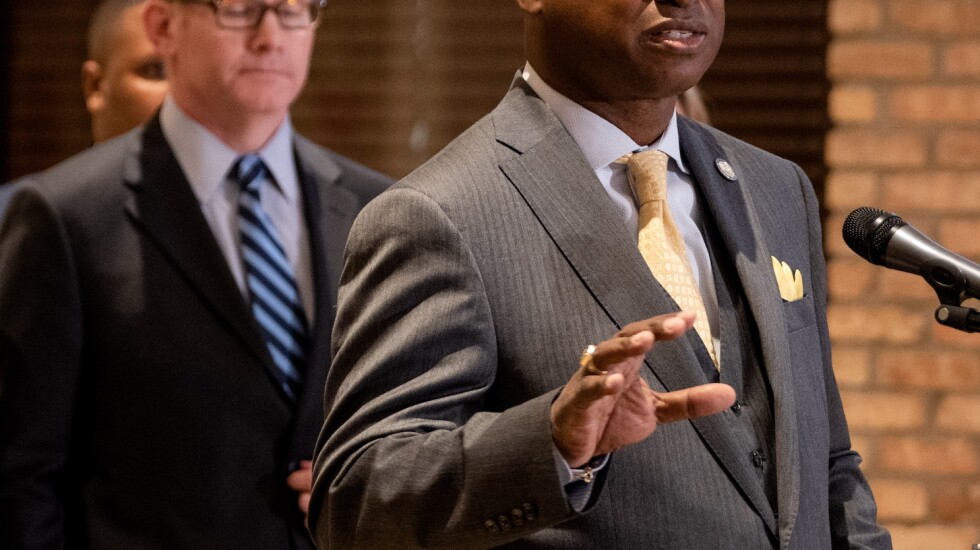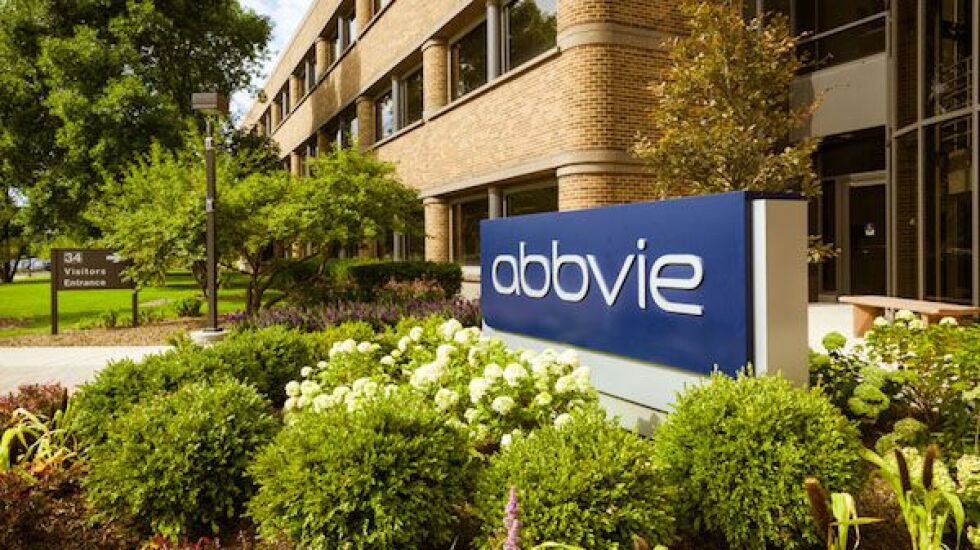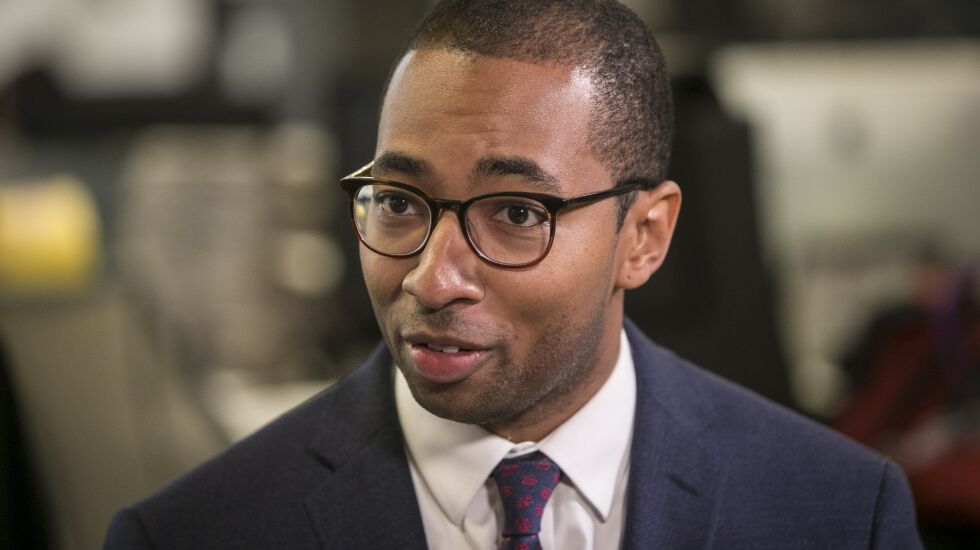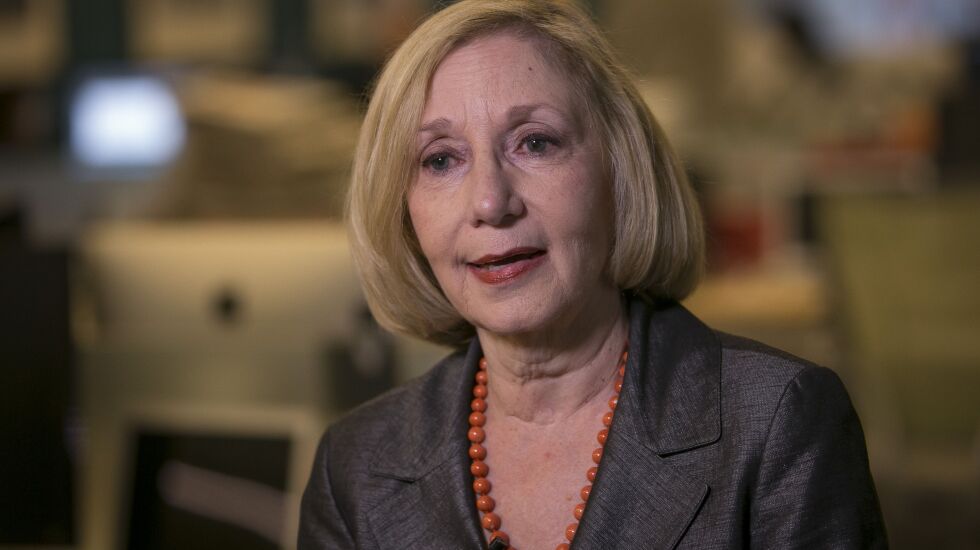
In 2017, Ohio’s attorney general sued Johnson & Johnson and other drug-makers, saying they’d wrongly “led prescribers to believe that opioids were not addictive, that addiction was an easy thing to overcome or that addiction could actually be treated by taking even more opioids.”
In 2019, government lawyers in Oklahoma called Johnson & Johnson the “kingpin” of the opioid crisis, likening the pharmaceutical giant to a Mexican drug cartel.
In 2021, New York’s top law enforcement figure declared that opioids “wreaked havoc on countless communities” and that Johnson & Johnson “helped fuel this fire.”
But Illinois politicians keep taking campaign money from Johnson & Johnson and other companies paying $26 billion to settle lawsuits that accused them of fueling the opioid crisis, campaign-finance records show.
Illinois Senate President Don Harmon, D-Oak Park, is the most prominent among them. Harmon has accepted these campaign contributions tied to the companies that have been painted by government lawyers across the nation as corporate bad guys in the opioid crisis:
- $2,000 last September from a Johnson & Johnson political action committee.
- $2,000 in 2020 from a Johnson & Johnson fund.
- $2,000 in December from Fidelity Consulting Group LLC, a Rosemont lobbying firm that lobbies for Johnson & Johnson.
- $7,500 over the past two years from firms that lobby on behalf of the Pharmaceutical Research and Manufacturers of America, a Washington, D.C., trade group to which Johnson & Johnson and other opioid sellers belong.
Harmon won’t talk about taking campaign contributions from companies linked to the opioid crisis.
Opioid cash won’t ‘compromise his values’
Asked about why he keeps taking that money, a spokesman for the Illinois Democrat, rather than answering questions, says: “Over two decades in office, President Harmon has tirelessly fought for progressive policies that make the wealthy and corporations pay their fair share, lower healthcare costs for working families and protect consumers from abuse. No donation from any source will ever compromise his values.”
Asked about its political contributions, a Johnson & Johnson spokeswoman points to statement on the company’s website that says: “We do not expect candidates who receive contributions from our employee political action committee or our company to agree with our positions on all or any specific policy issues. Rather, we seek to support candidates who recognize the importance of medical innovation in improving lives and that a fair, market-based system provides the best environment for continued innovation. We also seek to support candidates who recognize the importance of broad access to quality, affordable health care.”
Earlier this year, Johnson & Johnson was among four companies that agreed to pay $26 billion to settle lawsuits that accused them of making money off the highly addictive painkillers while ignoring the health and well-being of users.
Hundreds of thousands of overdose deaths nationwide have been reported in recent years, including, according to the federal Centers for Disease Control and Prevention, more than 75,000 opioid-related deaths from mid-2020 to mid-2021.
In Cook County, more than 10,000 deaths since 2016 have been linked to opioid overdoses. Statewide, the number is nearly 23,000 from 2008 through 2021.
Opioid payout coming to Illinois
State governments are among those that stand to get a piece of the $26 billion settlement — with an estimated $760 million destined for Illinois — to put toward drug-abuse treatment and prevention.
At a news conference last month, Harmon’s fellow Democrat Gov. J.B. Pritzker talked about how that money will be handled and called the opioid crisis “one of the most disturbing examples of corporate greed and medical mismanagement in human history.”

Among those involved in the settlement, Johnson & Johnson manufactured opioids, and Cardinal Health, McKesson Corp. and AmerisourceBergen distributed the narcotic painkillers.
Under the settlement, each of those companies will pay out billions of dollars. Johnson & Johnson — which, like the others who settled rather than face trial, hasn’t acknowledged any wrongdoing — also agreed to stop selling opioids in the United States.
Harmon, who was elected Senate president in 2020, got a $2,000 campaign contribution from McKesson in 2021.
The same year, the company also gave $750 to state Rep. Barbara Hernandez, D-Aurora. Hernandez, who didn’t respond to calls or emails seeking comment, was appointed to the Legislature in 2019 when Pritzker tapped her predecessor to head the Illinois Department of Veterans’ Affairs.
Harmon, who’s been in the General Assembly since 2003, accepted $250 from Cardinal Health in 2004, according to Illinois State Board of Elections records that show he’s gotten a total of about $150,000 from the pharmaceutical industry during his political career.
Welch among pols taking opioid-tied money
Campaign-finance records also show:
- Illinois House Speaker Emanuel “Chris” Welch, who assumed that top legislative post in January 2021, accepted a $2,000 campaign contribution from Johnson & Johnson in November, $1,500 in 2020 and $500 in 2019. Welch also got $750 in 2020 from McKesson. Welch and his aides would not answer questions about those contributions.

- Altogether since 1994, Illinois politicians’ campaign funds collectively have gotten about $450,000 from the four companies involved in the opioid settlement, including about $360,000 from Johnson & Johnson.
- The pharmaceutical research and manufacturers group gave more than $300,000 over the past two decades to Illinois politicians, including nearly $140,000 to campaign funds that were controlled by Welch’s predecessor, former House Speaker Michael Madigan. Sarah Sutton, a spokeswoman for the trade group, says: “We engage with policymakers from both sides of the aisle who have a wide array of health care opinions and priorities.”
- Illinois Attorney General Kwame Raoul, whose office is overseeing litigation in Illinois against the pharmaceutical industry, took a $1,000 campaign contribution from the pharma trade group in 2006 and $500 from Johnson & Johnson in 2015, both while he was in the General Assembly. Elected to his current post in 2018, he took contributions during that campaign from pharmaceutical firms, including $500 from AbbVie.

AbbVie also gave pols money
Last month, AbbVie, which is based in North Chicago, agreed to pay more than $2 billion to settle lawsuits over how its Allergan unit, which it bought in 2020, marketed opioids.
Teva Pharmaceuticals, which bought part of Allergan in 2016, announced a settlement agreement last month that could see it pay more than $4 billion to settle claims over opioids.
Harmon has gotten $25,000 in campaign contributions from AbbVie since 2013, including $5,000 in June and $15,000 in 2021, records show.
AbbVie has given Welch $21,500, including $5,000 in June and $15,000 in 2021, records show.
AbbVie, which like Teva is a member of the Pharmaceutical Research and Manufacturers of America, the trade group that has given heavily to Illinois politicians, gave $1,000 to then-state Rep. Christian Mitchell in 2018. After Pritzker took office in early 2019, he named Mitchell as one of his deputy governors.
Mitchell also got a $500 campaign contribution, in 2015, from Fidelity Consulting Group. Neither of the lobbyists who run the company returned calls or emails.
Asked about the contributions, Mitchell’s response was, “Let me talk to my team, see if it’s appropriate” to discuss this issue “and get back to you.” He didn’t.

Fidelity gave $1,000 in 2021 to state Rep. Robyn Gabel, D-Evanston, who also got $500 from Johnson & Johnson in December.
Gabel also took $500, in 2016, from Purdue Pharma. The company, long run by members of the billionaire Sackler family, pleaded guilty in 2007 and 2020 to criminal charges stemming from marketing practices that “downplayed” the addiction risks of the opioid OxyContin.
Gabel has worked in public health for years.
“I’ve worked with pharmaceutical companies around immunization issues for many years, for children’s immunizations,” Gabel says. “So they throw me a little bit of money once in a while.”








